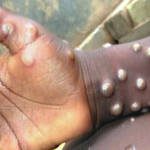The word antimicrobial was derived from the Greek words anti (against), mikros (little), and bios (life) and refers to all agents that act against microbial organisms.
It is an agent that kills microorganisms or stops their growth.
Antimicrobial medicines can be grouped according to the microorganisms they act primarily against.
They include antibiotics (against bacteria), antivirals (against virus), antifungal (against virus), and antiparasitic (against parasites) medicines.
They are commonly used to fight diseases in humans
Antimicrobial agents have saved millions of lives, substantially reduced the burden of diseases in people and animals, improved quality of life, contributed to improved food production and safety and helped increase life expectancy.
Prompt antimicrobial therapy for an infected patient can make the difference between cure and death or long-term disability.
Because of their widespread availability and familiarity, generally low cost, and relative safety, antimicrobials are among the most misused of all medicines.
Unfortunately, the use and misuse of antimicrobials have driven the relentless expansion of resistant microbes leading to a loss of efficacy of these “miracle drugs”.
The Problem: Antimicrobial resistance
According to World Health Organisation (WHO), antimicrobial resistance (AMR) occurs when bacteria, viruses, fungi, and parasites resist the effects of medications, making common infections more difficult to handle and increasing the risk of disease transmission, acute illness, and even death.
Antibiotic resistance is one of the biggest threats to global health today. It is rising to dangerously high levels in all parts of the world.
It is compromising our ability to treat infectious diseases and undermining many advances in health and medicine. It can affect anyone, of any age, in any country.
Antibiotic resistance occurs when bacteria change in response to the use of antibiotics. While this happens naturally, the overuse and misuse of antibiotics have accelerated the process, leading to record-high levels of antibiotic resistance.
The current global antibiotic resistance crisis is the result of six factors:
- Over-prescribing and dispensing of antibiotics by health workers
- Patients not finishing their full treatment course of antibiotics
- The over-use of antibiotics in livestock and fish farming
- Poor infection control in hospitals and clinics
- Lack of hygiene and poor sanitation
- Lack of new antibiotics being developed
Without urgent action, the world is headed for a ‘post-antibiotic era’ in which common infections and minor injuries which have been treatable for decades can once again kill, and the benefits of advanced medical treatments such as chemotherapy and major surgery will be lost. Without effective antibiotics, a growing list of infections is becoming harder to treat.
These include pneumonia, tuberculosis, blood poisoning and gonorrhoea. Antibiotics are a precious resource that cannot be taken for granted.
They have allowed many serious infections to become very treatable and saved millions of lives. There needs to be a worldwide change in behaviour if their effectiveness is to be preserved.
It is not too late to reduce the impact of antibiotic resistance and we all have a part to play in preserving the effectiveness of antibiotics.
By reducing the spread of infections and changing how we produce, prescribe, and use these medicines we can reduce the impact and limit the spread of antibiotic resistance.
The Solution: Key Messages
How the general public can help:
- Only use antibiotics when prescribed by a certified health professional
- Always take the full prescription, even if you feel better
- Never use leftover antibiotics
- Never share antibiotics with others
- Prevent infections by regularly washing your hands, avoiding close contact with sick people, and keeping your vaccinations up to date
How health workers can help:
- Prevent infections by ensuring your hands, instruments and environment are clean
- Keep your patients’ vaccinations up to date
- If you think a patient might need antibiotics, where possible, test to confirm and find out which one
- Only prescribe and dispense antibiotics if they are truly needed
- Prescribe and dispense the right antibiotic at the right dose for the right duration
How policymakers can help:
- Ensure you have a robust national action plan to tackle antibiotic resistance
- Improve surveillance of antibiotic-resistant infections
- Strengthen policies and implementation of infection prevention and control measures
- Regulate and promote the appropriate use of quality medicines
- Make information on the impact of antibiotic resistance available
By Kiran Bahrus Chimnani
Healious Global Pvt Ltd
(Educational house that runs online courses for doctors and paraprofessionals. For details email us at healious.global@gmail.com)




